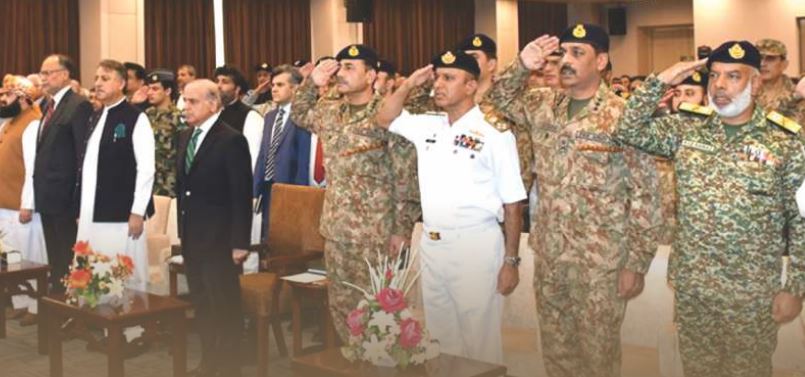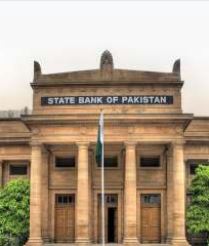
Keeping in view the dismal state of the economy, a Special Investment Facilitation Council (SIFC) — a hybrid civil-military forum has been set up by the government of Pakistan to attracting and facilitating investment in the country.
Dr. Talat Anwar
In June 2023, in the backdrop of historically high inflation at 38% and 0.3% annual GDP growth, amid default risk on debt obligations owing to abysmally low forex reserves of $3.5 billion, the government presented an expansionary budget with total expenditure of Rs14.46 trillion, more than half of which will be utilised to service the growing debt.
This would result into the ever highest fiscal deficit of Rs. 7.5 trillion in the history of Pakistan. FBR tax revenue target of Rs. 9.2 trillion is ambitious against current year collection of less than Rs.7 trillion.

Consequently, fiscal deficit will increase further which will put pressure on inflation increasing poverty, unemployment and indebtedness further. The price trend during the month of July 2023 is supportive of this apprehension regarding the high inflation tendency during the rest of the year.
Although Pakistan has been able to sign an IMF programme in July 2023, it still faces a number of economic challenges, including the risk of default on its debt obligations in case of violation of programme conditionalites by the authorities.
According to IMF, Pakistan has to pay $15 billion to service its external debt and hence its gross external financing requirement including current account deficit is $27 billion in fiscal year 2023-24 whereas its foreign exchange reserves are $8 billion by end July 2023.
A number of factors including high fiscal deficit, balance of payments pressures, external debt burden, and low foreign exchange reserves have also raised concerns about the country’s ability to meet its financial obligations. The risk of economic default can affect investor confidence and investment and growth prospects in the country.
Keeping in view the dismal state of the economy, a Special Investment Facilitation Council (SIFC) — a hybrid civil-military forum has been set up by the government of Pakistan which is aimed at attracting and facilitating investment in the country.
The Council is an effort to remove hurdles faced by foreign investors, and promote economic growth and employment. The military has a significant role in the Council, with the army chief being a member of its apex committee.
The SIFC is expected to streamline the investment process, address investors’ concerns, and create a more investor-friendly environment in Pakistan. It is, however, important to note that the focus of the SIFC will be to facilitate mainly the foreign investors.
The neglect of facilitating domestic investors might lead to movement of capital and investment abroad to other countries. Thus it is equally important to facilitate the domestic investors to invest in the country.

It is noteworthy that the investment climate in Pakistan is influenced by multiple factors, including economic policies, political stability, regulatory environment, infrastructure, ease of doing business, and geopolitical considerations.
Despite the challenges, Pakistan also offers various investment opportunities in sectors like energy, infrastructure, and agriculture. In this context, it would be important to discuss as to how Pakistan can promote investment to increase business activities and restore the economy.
Increasing business activities in Pakistan requires a comprehensive approach that focuses various economic, and regulatory factors. The following are fundamental reforms and policies that can help foster a conducive environment for business growth in the country:
Simplifying Regulatory Procedures: Simplifying business registration, licensing, and regulatory procedures can reduce bureaucracy and encourage entrepreneurs to start new ventures. An efficient and transparent regulatory environment attracts both domestic and foreign investors.
Foster Ease of Doing Business: Implementing reforms to improve Pakistan’s ranking in the World Bank’s “Ease of Doing Business” index will create a business-friendly environment. Simplifying tax procedures, reducing the time and cost of starting a business, and ensuring the smooth flow of goods across borders are critical aspects to promote business activities and exports.
Adequate Infrastructure: Enhancing infrastructure, including transportation networks, energy supply, and digital connectivity, is crucial for attracting investments and supporting business operations. Government and private sector collaboration in infrastructure development can create opportunities for businesses to succeed.

Improve Skills Development: Investing in skills development programs equips the workforce with relevant skills, making them more employable and capable of driving business growth and innovation.
Encouraging Research and Development (R&D): Boosting investments in research and development will lead to technological advancements and higher competitiveness of Pakistani businesses in the global market thereby increasing exports.
Enabling access to Finance: Facilitating access to finance for small and medium-sized enterprises (SMEs) will significantly boost business activities and result in increased employment opportunities. This can be achieved through the establishment of credit guarantee schemes, venture capital funds, and other mechanisms that support entrepreneurship and innovation.
Employ Pro-Business Tax Policies: Rationalizing tax policies and reducing tax burdens on businesses can stimulate investment and growth.
Promote Entrepreneurship: Designing an entrepreneurial ecosystem that nurtures start-ups and innovative ideas through incubators, accelerators, and mentorship programs can spur business activities and job creation.
Foster Export-Oriented Industries: Identifying comparative advantage and promoting export-oriented industries will contribute to economic diversification, increase foreign exchange earnings, and stimulate business activities enabling the country to accumulate foreign exchange reserves to a comfortable level that are sufficient to meet our future debt obligations.

Promote Public-Private Partnerships (PPPs): Collaborations between the public and private sectors can leverage resources, expertise, and efficiency to implement large-scale projects and initiatives that drive economic growth.
Foster Trade and Investment Agreements: Entering into favorable trade and investment agreements with other countries can open up new markets for Pakistani businesses and attract foreign direct investment.
Assure Political Stability and Security: A stable political environment and improved security situations provide investors and businesses with confidence and assurance to invest and operate in the country.
If these reforms and policies are implemented to foster business-friendly environment, Pakistan can attract investments both from foreign and domestic investors, create job opportunities, attain sustained economic growth and reduce poverty. Collaboration between the government, private sector, and civil society is essential to achieve these goals and create a prospering business ecosystem in the country.
If these reforms and policies are pursued in letter and spirit, Pakistan can improve its competitiveness, and expand its exports to $45 billion by 2025 currently from $27 billion enabling the country to meet its debt obligations, achieve an economic growth rate of 6% by 2025 and improve the living standards of the poor and vulnerable groups in the country.

The writer is Professor of Economics, SBP
Memorial Chair, School of Economics, Bahauddin Zakariya University, Multan.

